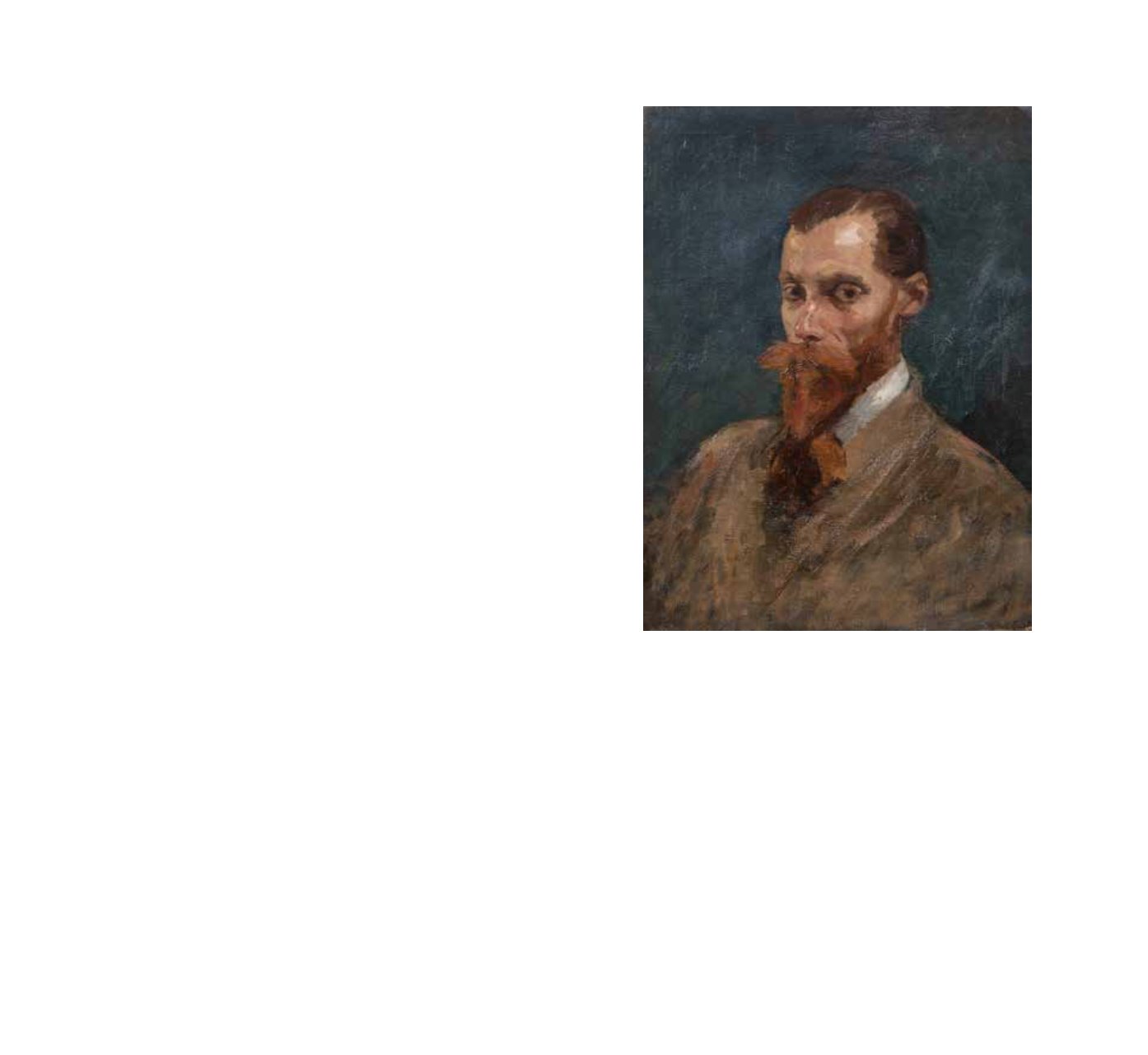
191
Important Irish Art
,
wednesday 1st October 2014 at 6pm
203 Estella Frances Solomons HRHA (1882-1968)
Darrell Figgis
Oil on canvas, 61 x 46cm (24 x 18”)
Provenance: From the Artist’s studio and thence from the estate of the
late Geoffrey O’Connor, Kerry
Exhibited: “Estella Solomons” Exhibition, Crawford Gallery, Cork,
May/June 1986, Cat. No. 23
Darrell Figgis (1882-1925) was born into a wealthy tea merchant
family moving to Ceylon while an infant but the tea business was
not for him as he preferred to write both as a poet and journalist. He
moved home to Ireland around 1910 and quickly discovered Irish
politics and nationality. In 1913 he joined the volunteers and was one
of the instigators of the Howth gun-running incident of July 1914
having bought the arms in Hamburg and moved them to the Roetigen
lightship off the coast of Belgium where they were transferred to the
yachts belonging to Erskine Childers and Conor O’Brien.
Although not active in the 1916 rising he was arrested and transferred
with the elite to Reading prison, one of many detentions imposed in the
following years. He wrote about these detentions in two chronicles in
which he apparently exaggerated his role as he was generally unpopular.
However Arthur Griffith admired and trusted him as they were both wary of the more militarist wing of the Nationalist movement.
He supported the treaty and was elected to the Sinn Féin executive in 1922 where he was appointed vice- chairman of the committee
to draft the Free State Constitution. He ran as a pro-treaty Independent candidate in June 1922 when he topped the poll. His political
career went into decline after that and eventually he took his own life in London in October 1925. Darrell Figgis (1882-1925) was born
into a wealthy tea merchant family moving to Ceylon while an infant but the tea business was not for him as he preferred to write both
as a poet and journalist. He moved home to Ireland around 1910 and quickly discovered Irish politics and nationality. In 1913 he joined
the volunteers and was one of the instigators of the Howth gun-running incident of July 1914 having bought the arms in Hamburg and
moved them to the Roetigen lightship off the coast of Belgium where they were transferred to the yachts belonging to Erskine Childers
and Conor O’Brien.
Although not active in the 1916 rising he was arrested and transferred with the elite to Reading prison, one of many detentions imposed
in the following years. He wrote about these detentions in two chronicles in which he apparently exaggerated his role as he was generally
unpopular. However Arthur Griffith admired and trusted him as they were both wary of the more militarist wing of the Nationalist
movement. He supported the treaty and was elected to the Sinn Féin executive in 1922 where he was appointed vice- chairman of the
committee to draft the Free State Constitution. He ran as a pro-treaty Independent candidate in June 1922 when he topped the poll. His
political career went into decline after that and eventually he took his own life in London in October 1925.
€1,200 - 1,600


